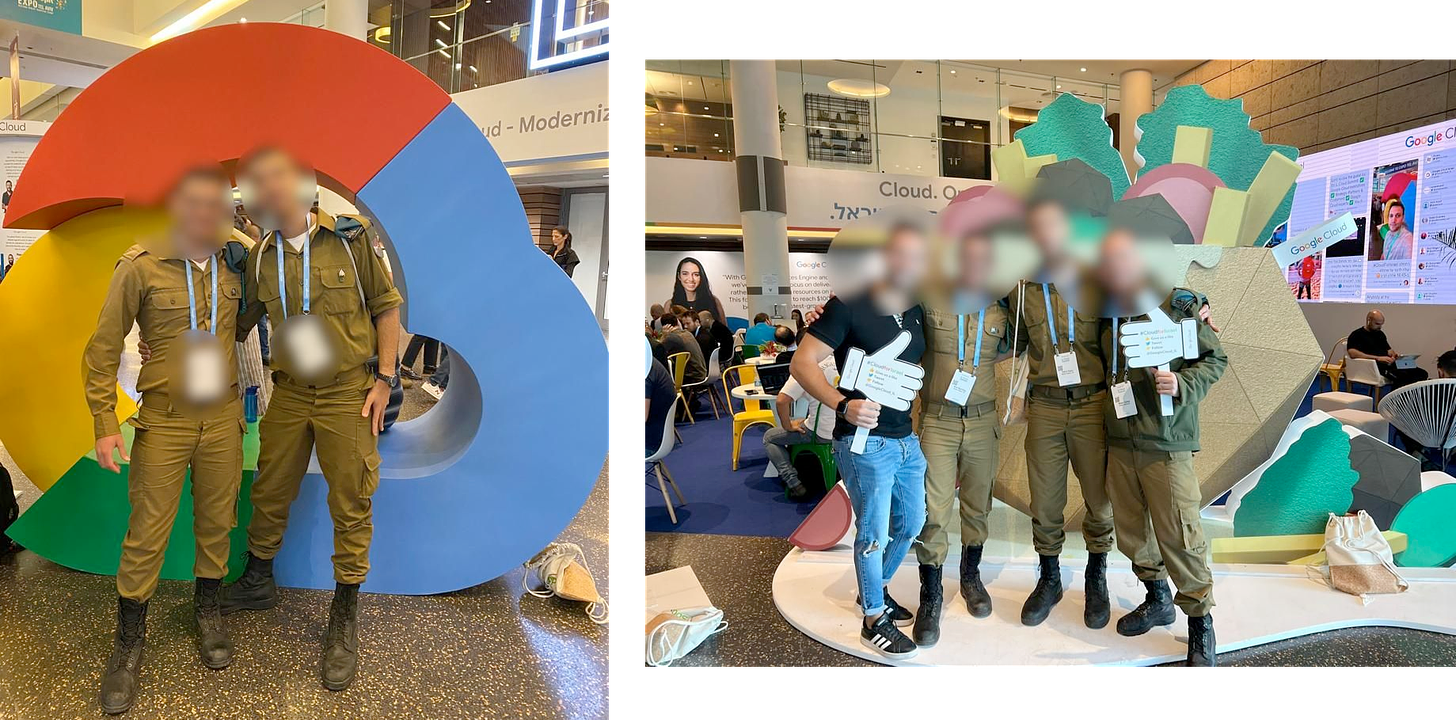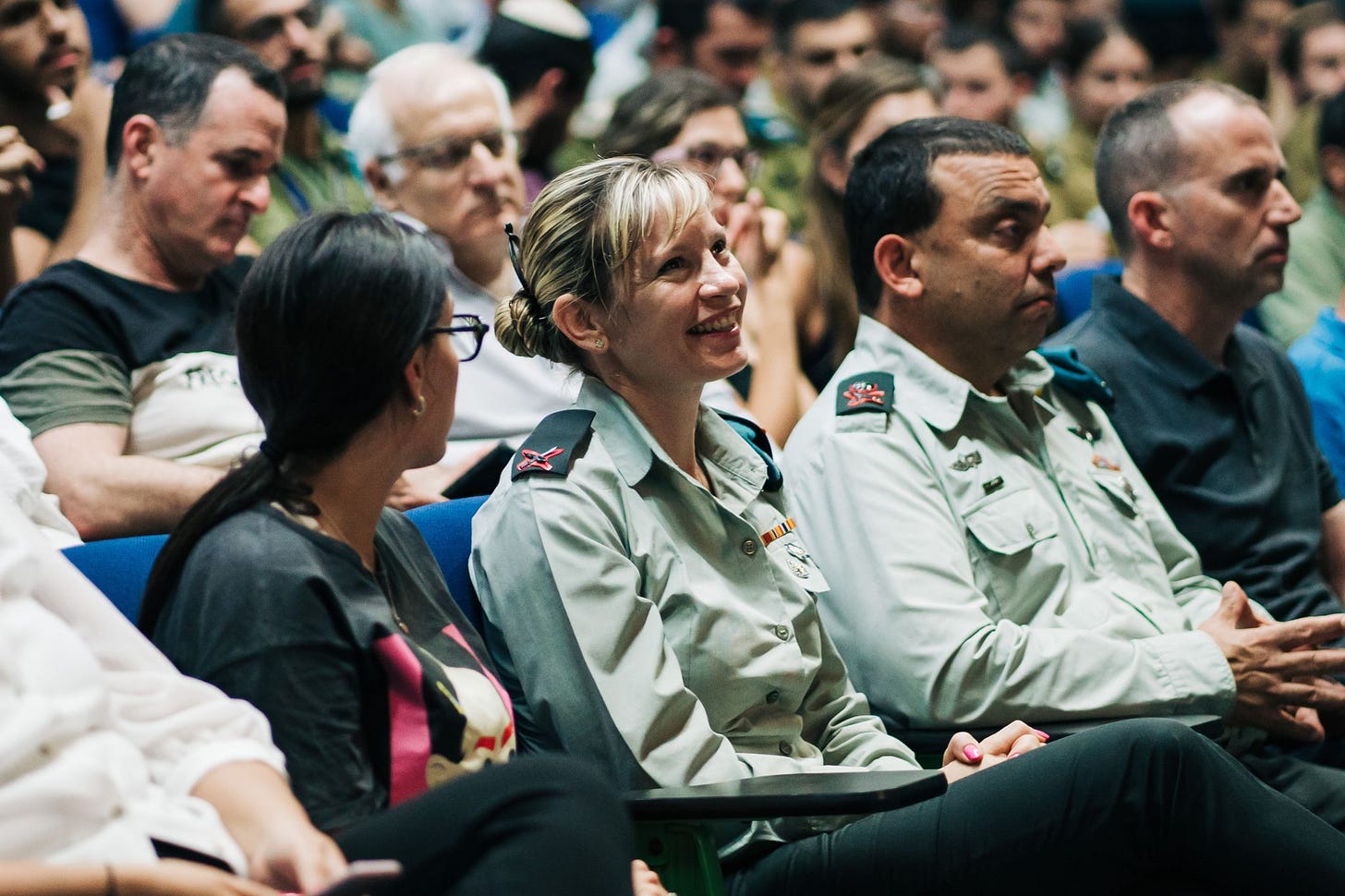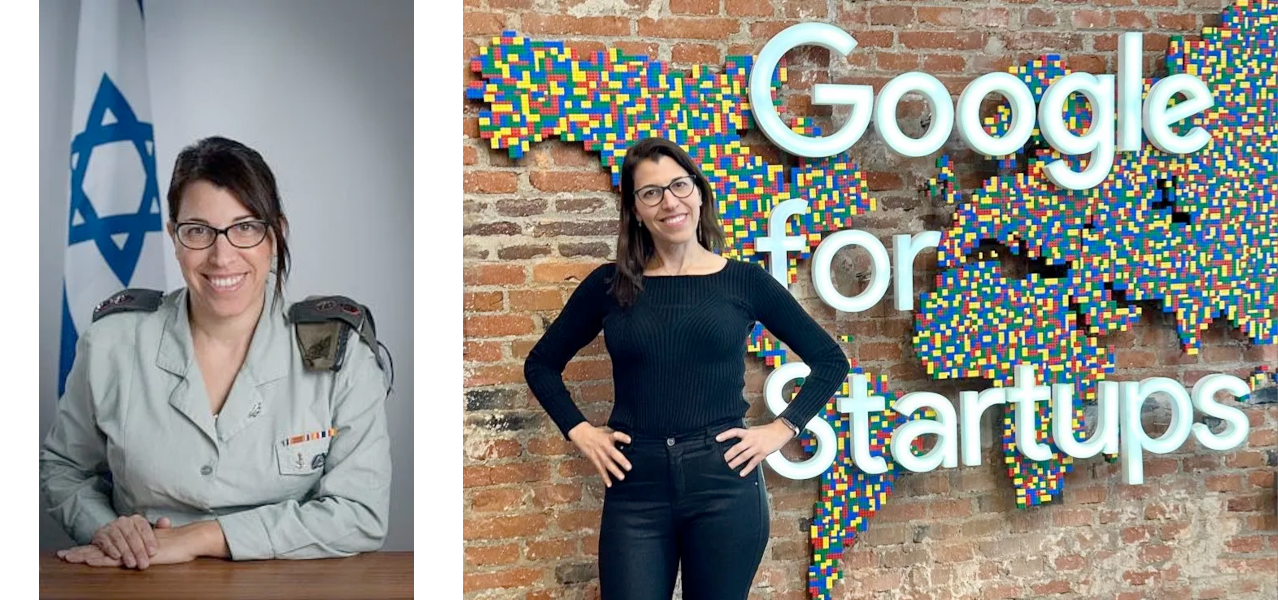
A packed room of Israel Defense Forces (IDF) soldiers attending a conference at a Microsoft Israel R&D center. The photo was publicly shared by the Lotem technology unit of the IDF’s Computer Services Directorate on August 2, 2023 and shows a conference led by the unit’s Shahar component the previous day, with roughly 150 soldiers in attendance. Microsoft’s logo can be partially seen on the center of the left side of the image and the title of the displayed slide translates from Hebrew to “the 10 commandments of the digital.” The second such commandment can be seen to be “RTFM,” meaning: “Read The Fucking Manual.”









